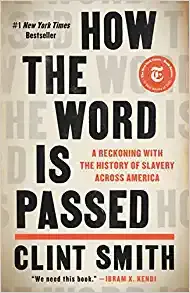Here are some thought-provoking books to teach kids of all ages about Juneteenth and the responsibility we all have now more than ever to dismantle the structures and institutions that survive liberation and make America truly free for everyone The place.
Here’s a list of books for toddlers and young readers of all ages to read to learn more about Juneteenth and Black History.
1. All Different Now: Juneteenth, the First Day of Freedom (aged 5-9)

All Different Now: Juneteenth, the First Day of Freedom by Angela Johnson
Experience the joy of Juneteenth in this celebration of freedom from the award-winning team of Angela Johnson and E.B. Lewis.
Through the eyes of one little girl, All Different Now tells the story of the first Juneteenth, the day freedom finally came to the last of the slaves in the South. Since then, the observance of June 19 as African American Emancipation Day has spread across the United States and beyond.
This stunning picture book includes notes from the author and illustrator, a timeline of important dates, and a glossary of relevant terms.
Told in Angela Johnson’s signature melodic style and brought to life by E.B. Lewis’s striking paintings, All Different Now is a joyous portrait of the dawn breaking on the darkest time in our nation’s history.
Angela Johnson has won three Coretta Scott King Awards, one each for her novels The First Part Last, Heaven, and Toning the Sweep. The First Part Last was also the recipient of the Michael L. Printz Award. She is also the author of the novels Looking for Red and A Certain October.
Her books for younger readers include the Coretta Scott King Honor Book When I Am Old with You, illustrated by David Soman; Wind Flyers and I Dream of Trains, both illustrated by Loren Long; and Lottie Paris Lives Here and its sequel Lottie Paris and the Best Place, both illustrated by Scott M. Fischer.
Additional picture books include A Sweet Smell of Roses, Just Like Josh Gibson, The Day Ray Got Away, and All Different Now. In recognition of her outstanding talent, Angela was named a 2003 MacArthur Fellow. She lives in Kent, Ohio. Visit her at AJohnsonAuthor.com.
This book tells the story of the first Juneteenth through the eyes of a young enslaved girl. Young readers can easily understand the hardships and cruelties of slavery, as well as the joy and optimism that the end of slavery will bring.
2. Juneteenth for Mazie
Juneteenth for Mazie by Floyd Cooper
Floyd Cooper's book portrays Mazie, a little girl tired of hearing "no." From her parents, she doesn't feel like she has any freedom.
However, when her father taught her about Juneteenth, she gained a new understanding of what freedom really means.
As she celebrated Juneteenth with her family for the first time, she thought deeply about the struggles and triumphs of her ancestors, and the work needed to achieve a truly free future for everyone.
3. Juneteenth (On My Own Holidays)
Juneteenth by Vaunda Micheaux Nelson and Drew Nelson
June 19th, 1865, began as another hot day in Texas. Enslaved African Americans worked in fields, in barns, and in the homes of the white people who owned them.
Then a message arrived. Freedom! Slavery had ended! The Civil War had actually ended in April. It took two months for word to reach Texas. Still, the joy of that amazing day has never been forgotten.
Every year, people all over the United States come together on June 19th to celebrate the end of slavery. Join in the celebration of Juneteenth, a day to remember and honor freedom for all people.
4. Freedom’s Gifts: A Juneteenth Story
Freedom's Gifts: A Juneteenth Story by Valerie Wesley
With the help of their elderly Aunt Marshall, June and her cousin Lillie celebrate Juneteenth, the day Texas slaves found out they had been freed, two years after the Emancipation Proclamation.
5. Juneteenth Jamboree
Juneteenth Jamboree by Carole Boston Weatherford
Joining her parents in a community celebration of Juneteenth, Cassie learns about the day when slaves in Texas were freed some two years after the Emancipation Proclamation and wonders why the news took so long to reach them.
This book tells the wonderful story of Cassie, a young Texas girl who celebrates her first Juneteenth with her family. Not only did she learn about the festival, but the intense excitement and joy of the celebration helped her truly understand the precious gift of true freedom.
6. Opal Lee and What it Means to Be Free

Opal Lee and What It Means to Be Free: The True Story of the Grandmother of Juneteenth by Alice Faye Duncan
Every year, Opal looked forward to the Juneteenth picnic—a drumming, dancing, delicious party. She knew from Granddaddy Zak's stories that Juneteenth celebrated the day the freedom news of President Lincoln's Emancipation Proclamation finally sailed into Texas in 1865—over two years after the president had declared it! But Opal didn't always see freedom in her Texas town.
Then one Juneteenth day when Opal was twelve years old, an angry crowd burned down her brand-new home. This wasn't freedom at all. She had to do something!
But could one person’s voice make a difference? Could Opal bring about national recognition of Juneteenth? Follow Opal Lee as she fights to improve the future by honoring the past.
Through the story of Opal Lee's determination and persistence, children ages 4 to 8 will learn:
- All people are created equal
- the power of bravery and using your voice for change
- the history of Juneteenth, or Freedom Day, and What it means today
- No one is free unless everyone is free
- Fighting for a dream is worth the difficulty experienced along the way
Featuring the illustrations of New York Times bestselling illustrator Keturah A. Bobo (I am Enough), Opal Lee, and What It Means to Be Free by Alice Faye Duncan celebrates the life and legacy of a modern-day Black leader while sharing a message of hope, unity, joy, and strength.
7. What is Juneteenth?
What Is Juneteenth? (What Was?) by Kirsti Jewel and Who HQ
On June 19, 1865, a group of enslaved men, women, and children in Texas gathered around a Union soldier and listened as he read the most remarkable words they would ever hear.
They were no longer enslaved: they were free. The inhumane practice of forced labor with no pay was now illegal in all of the United States.
This news was cause for celebration, so the group of people jumped in excitement, danced, and wept tears of joy. They did not know it at the time, but their joyous celebration of freedom would become a holiday--Juneteenth--that is observed each year by more and more Americans.
Author Kirsti Jewel shares stories from Juneteenth celebrations, both past, and present, and chronicles the history that led to the creation of this joyous day.
With 80 black-and-white illustrations and an engaging 16-page photo insert, readers will be excited to read this latest addition to Who HQ!
8. Free at Last: A Juneteenth Poem
Free at Last: A Juneteenth Poem by Sojourner Kincaid Rolle
Deeply emotional, evocative free verse by poet and activist Sojourner Kincaid Rolle traces the solemnity and celebration of Juneteenth from its 1865 origins in Galveston, Texas to contemporary observances all over the United States.
This is an ode to the strength of Black Americans and a call to remember and honor a holiday whose importance reverberates far beyond the borders of Texas.
9. The Juneteenth Story
The Juneteenth Story: Celebrating the End of Slavery in the United States by Alliah L. Agostini
With colorful illustrations and a timeline, this introductory history of Juneteenth for kids details the evolution of the holiday commemorating the date the enslaved people of Texas first learned of their freedom.
On June 19, 1865—more than two years after President Lincoln’s Emancipation Proclamation—the enslaved people of Texas first learned of their freedom.
As Black Texans moved to other parts of the country, they brought their traditions along with them, and Juneteenth continued to grow and develop.
Today, Juneteenth’s powerful spirit has endured through the centuries to become an official holiday in the United States in 2021. The Juneteenth Story provides an accessible introduction for kids to learn about this important American holiday.
10. Juneteenth (Celebrating Holidays)
Juneteenth (Celebrating Holidays) by Rachel Grack
On June 19, 1865, two years after the Emancipation Proclamation Galveston, Texas became the last place in the country to learn the slaves were free. Today, Juneteenth is a joyful occasion with parades, speeches, music, and more!
This engaging book teaches the fascinating origins and traditions of Juneteenth, honoring the freedom of African Americans.
11. Let's Celebrate Emancipation Day & Juneteenth
Let's Celebrate Emancipation Day & Juneteenth by Barbara deRubertis
In the 1800s, abolitionists like Harriet Tubman, Frederick Douglass, and Sojourner Truth fought for freedom from slavery for all African Americans.
They fought with speeches, songs, newspapers, and even with daring rescue missions! Every year on both Emancipation Day and Juneteenth we honor and continue their fight for freedom and equality.
Holidays & Heroes brings to life the people whose holidays we celebrate throughout the year. Enriched with colorful historical images, books in this series will engage children in the stories behind our holidays and the people they honor.
12. Juneteenth
Juneteenth by Julie Murray
Easy-to-read text paired with colorful photos and informative captions introduces readers to a meaningful holiday, Juneteenth. Readers will learn the history of Juneteenth, including slavery in the United States, the American Civil War, and the birth of Juneteenth as a Texas state holiday.
Associated symbols such as the color red and the Juneteenth flag are described, as well as traditions including parades and picnics, music and games, and special foods and drinks.
Buddy BOOKS is an imprint of ABDO Publishing Company.
13. The Story of Juneteenth
The Story of Juneteenth: An Interactive History Adventure by Steven Otfinoski
The Emancipation Proclamation and the Civil War brought an official end to slavery, yet some Southern slave owners refused to comply.
The road to freedom is still long and hard for many African Americans, but you’re not giving up. Will you: Overcome obstacles as you make your way north from Texas, looking to begin a new life of freedom?
Seek out your family, from whom you were separated as a child, after emancipation. Fight back when you take work as an apprentice but find that you’re still treated as a slave?
14. Traditional African American Arts and Activities

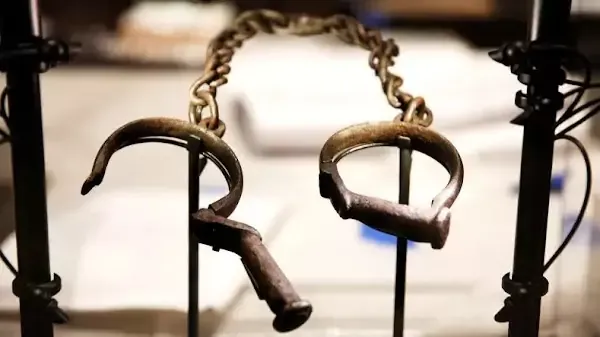


.webp)










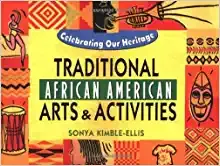

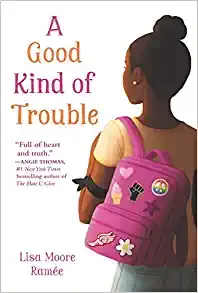
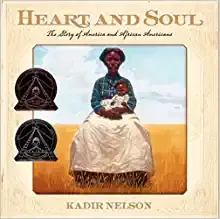

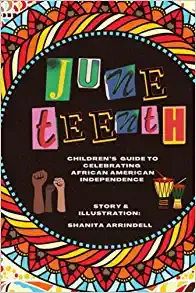
.webp)

